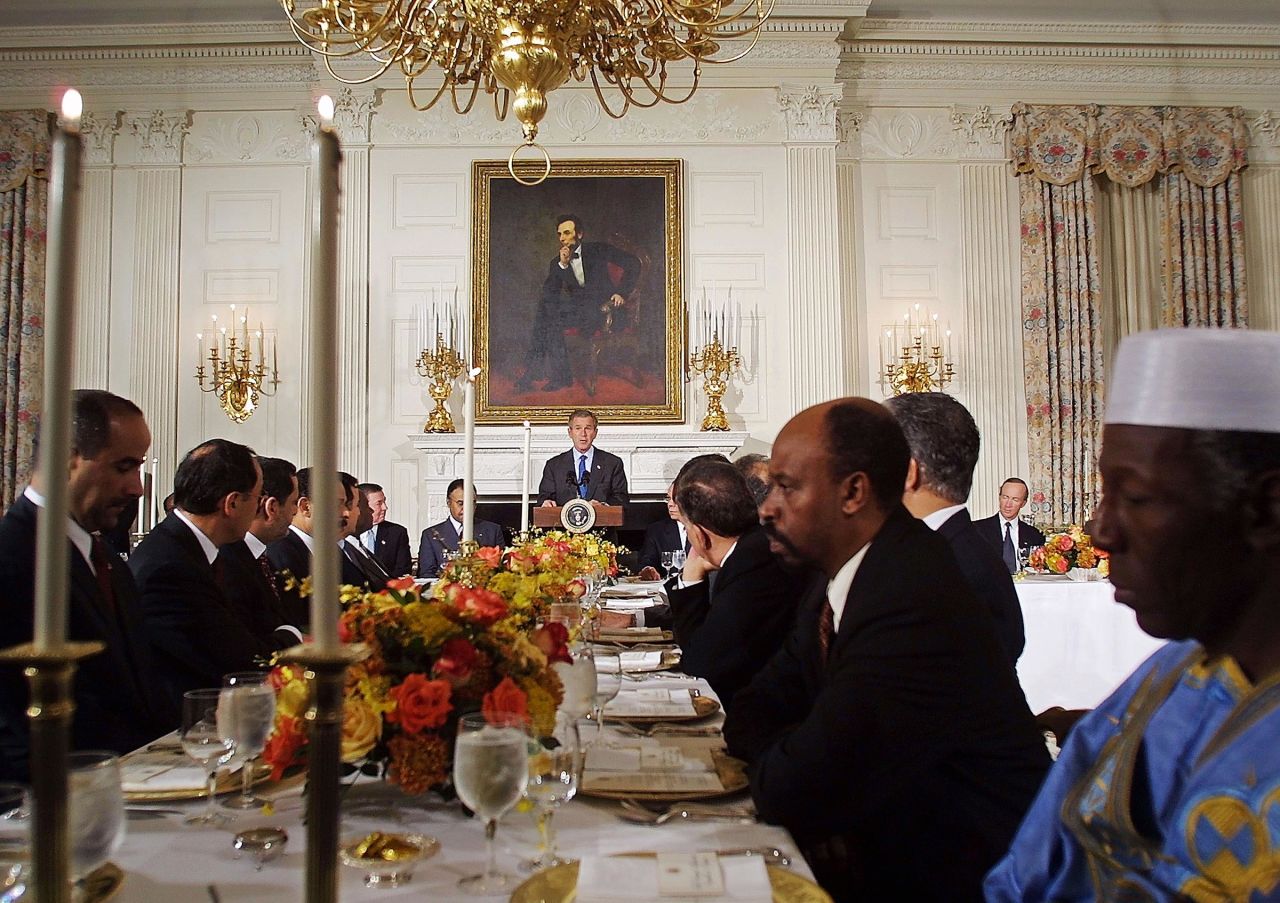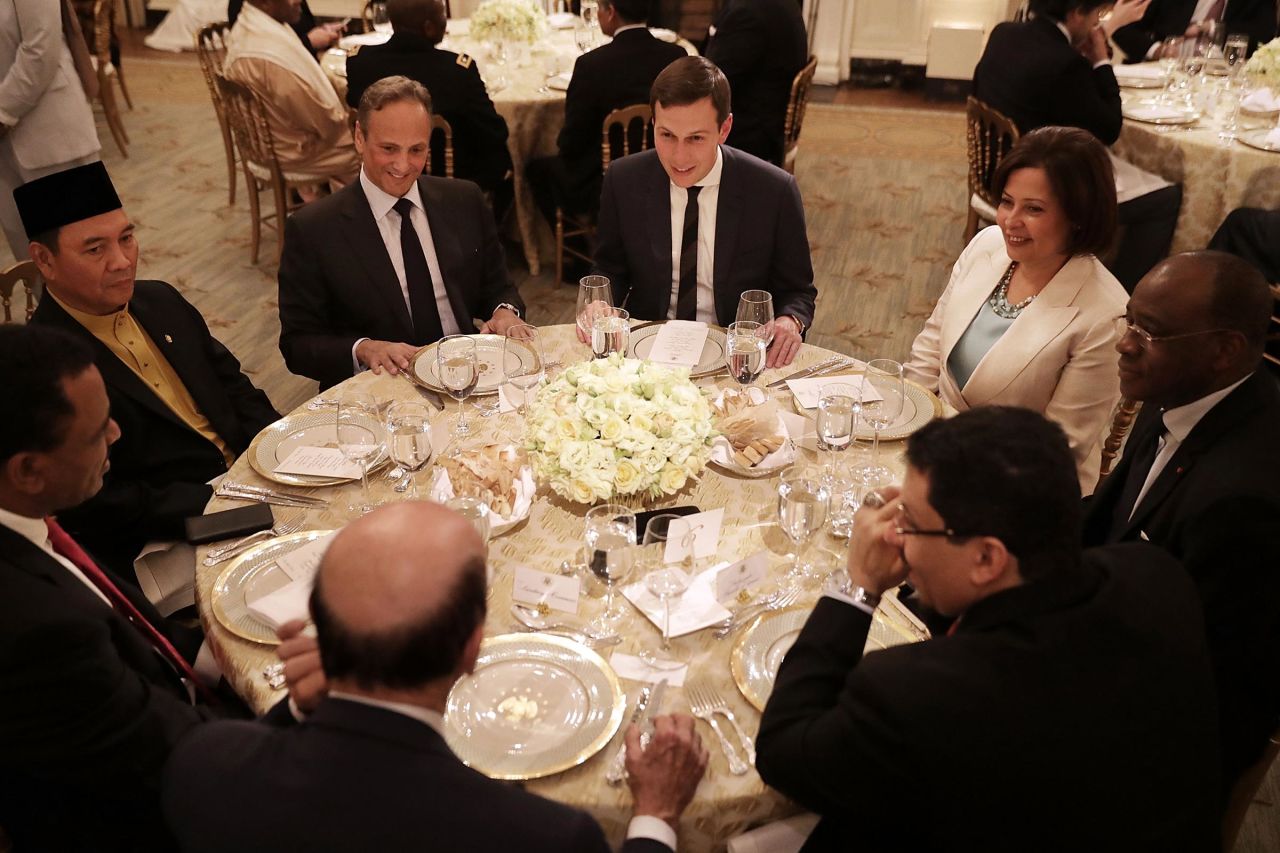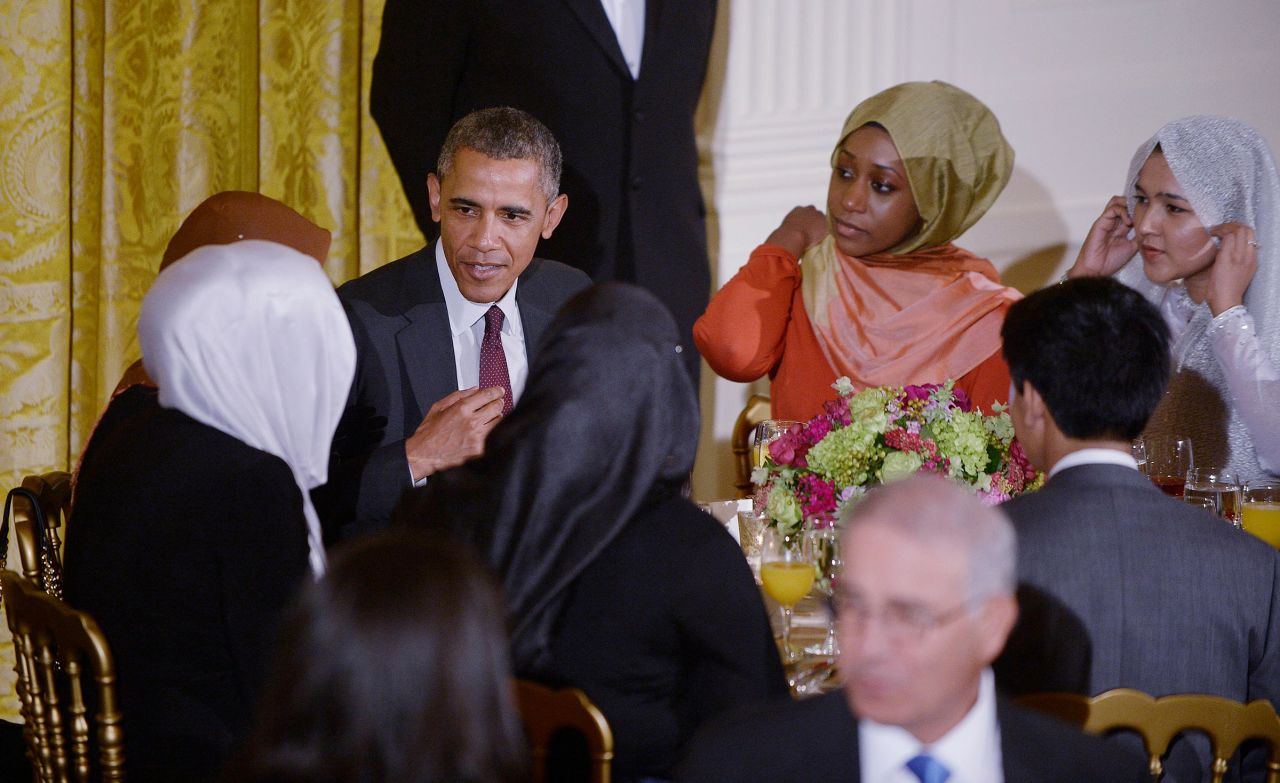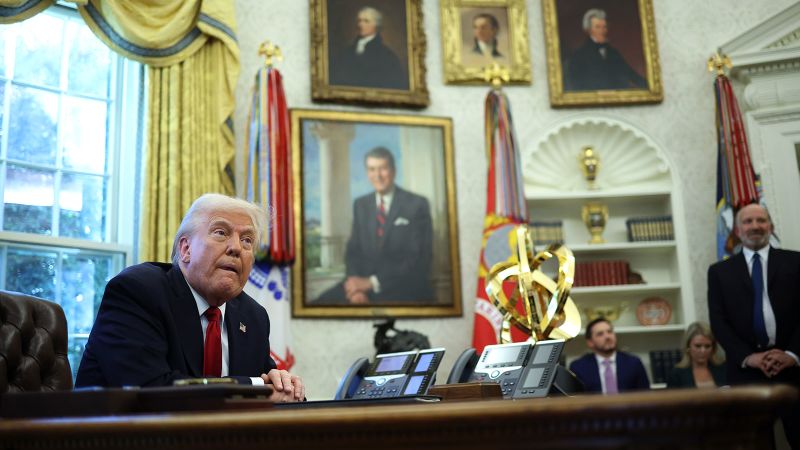President Donald Trump is scheduled to host a White House iftar dinner tonight, the sundown meal where Muslims break fast during the holy month of Ramadan.
Traditionally an annual event, the White House iftar has faced controversy in recent years. Last year, former President Joe Biden held a scaled-back event after several Muslim and Arab Americans declined invitations over tensions related to Israel’s war in Gaza.

This year’s dinner comes as Trump has made controversial remarks about Gaza, Israel has ramped up its attacks on the Strip and as the administration targets pro-Palestinian activists in its immigration crackdown.
The president has had a complicated history with the iftar event, much like his relationship with the Muslim community in the US.
Trump broke with the annual tradition, which officially started with Bill Clinton in 1996, during his first term in 2017 — the same year he implemented a travel ban on some Muslim-majority countries. He reinstated the iftar dinners in the following years of his first term, inviting mainly the diplomatic community, while several American Muslims told CNN they were reluctant to attend, citing Trump’s rhetoric and actions toward the community.

In his second term, Trump is facing criticism from some Muslim-American groups about his administration’s engagement with the community post-election. Government affairs director at the Council of American-Islamic Relations, Robert McCaw, told CNN in a statement that they have not seen any “meaningful signs that the Trump administration intends to engage with mainstream Muslim American organizations or leaders during Ramadan—or at any other time.”
“While efforts were made early on to open channels of communication with the administration to enact positive policy reforms to address federal law enforcement abuses and overreach, those attempts have gone unanswered,” he added.

Still, some, like Professor Akbar Ahmed, the Ibn Khaldun Chair of Islamic Studies at American University, remain hopeful, noting that the administration is in its early days and the president met with members of the Muslim community before the election for “some very positive conversations.”
“I felt a sense of hope because I always felt that President Trump is capable of doing the unexpected,” Ahmed, who is also a Global Fellow of the Wilson Center, said. He emphasized that Trump’s outreach to the Muslim community during the 2024 election ultimately did win over some votes. He said he is looking forward to see the impact those initiatives have.
CNN has reached out to the White House.

